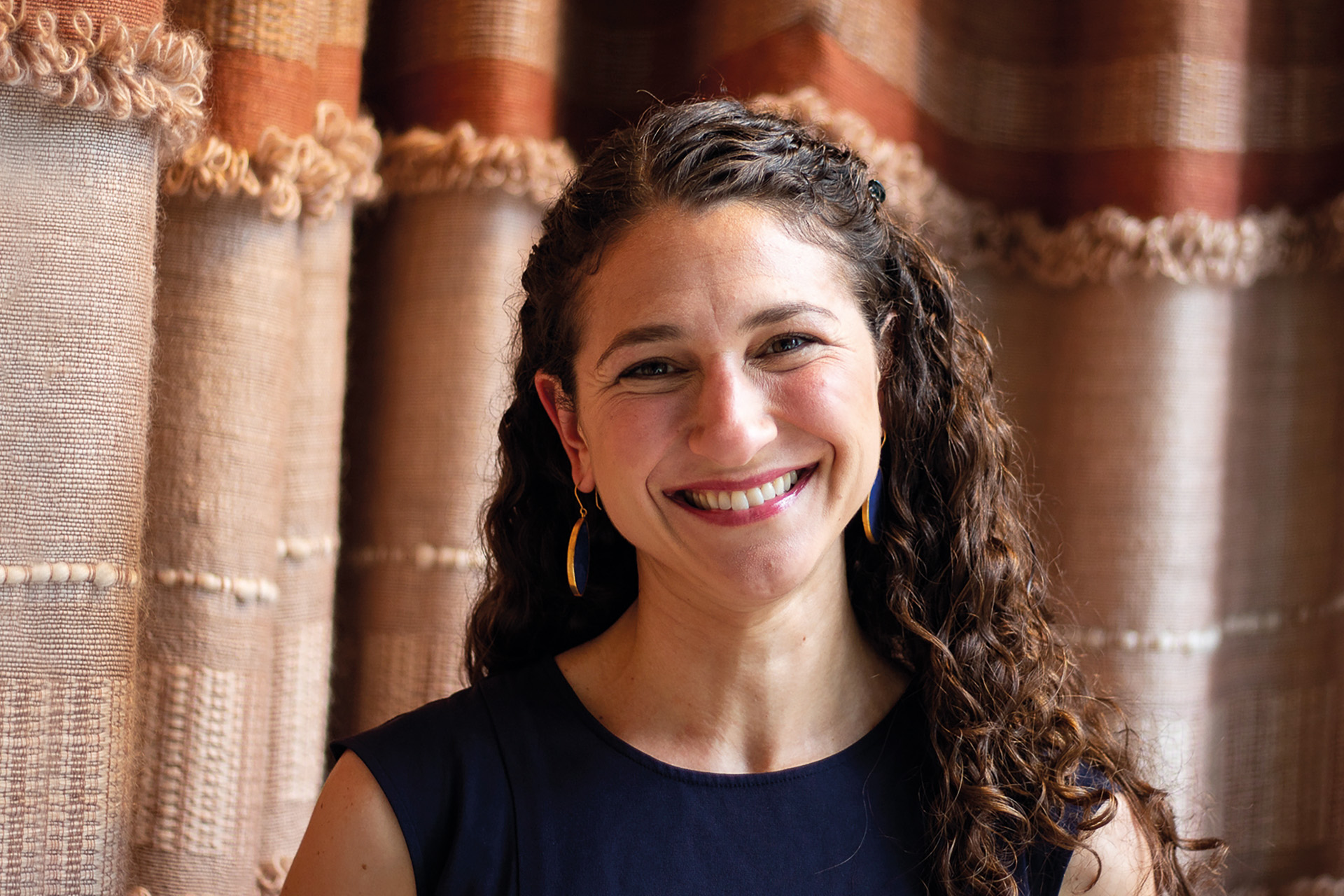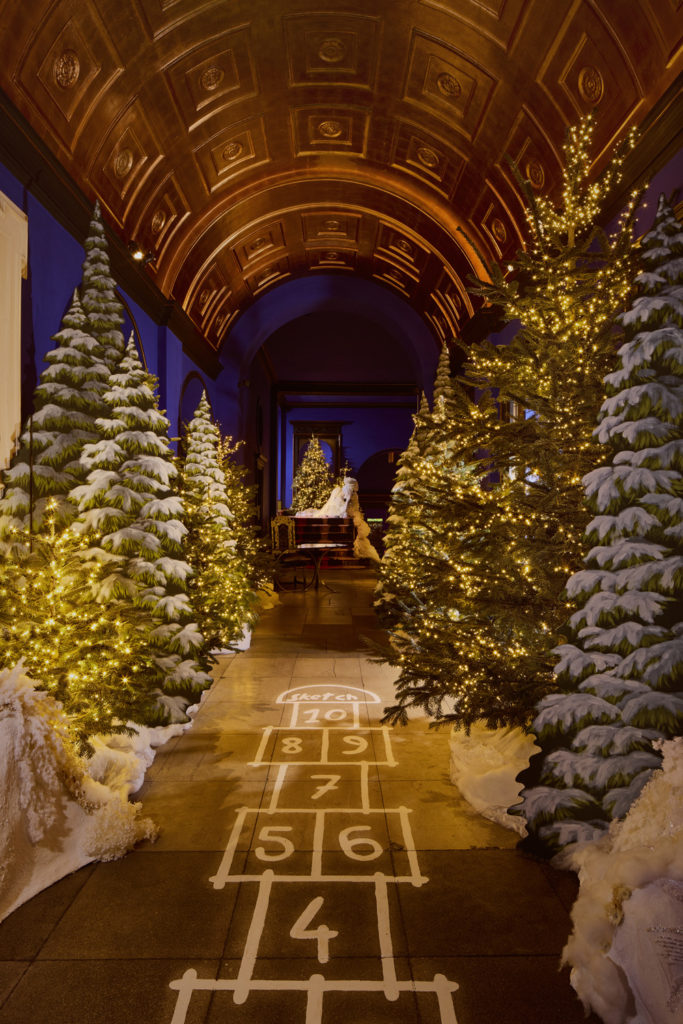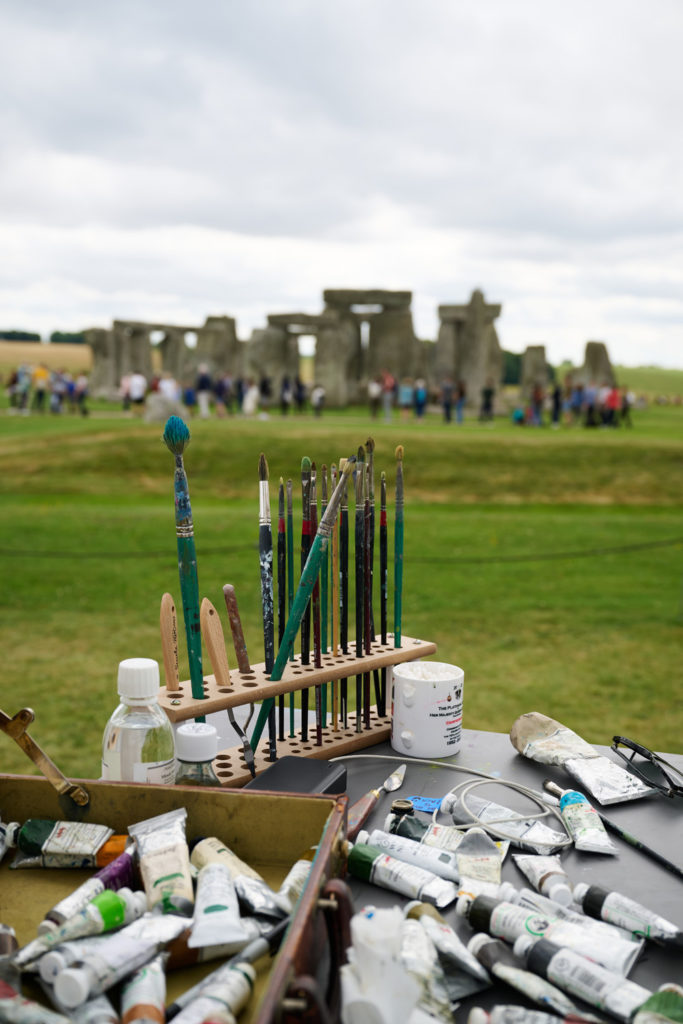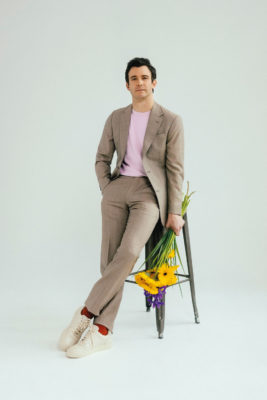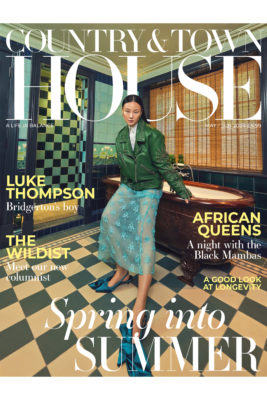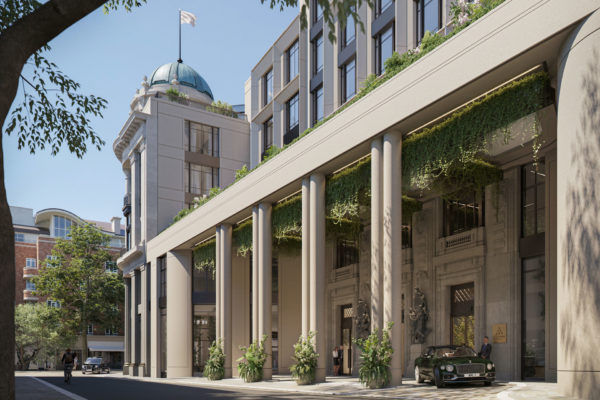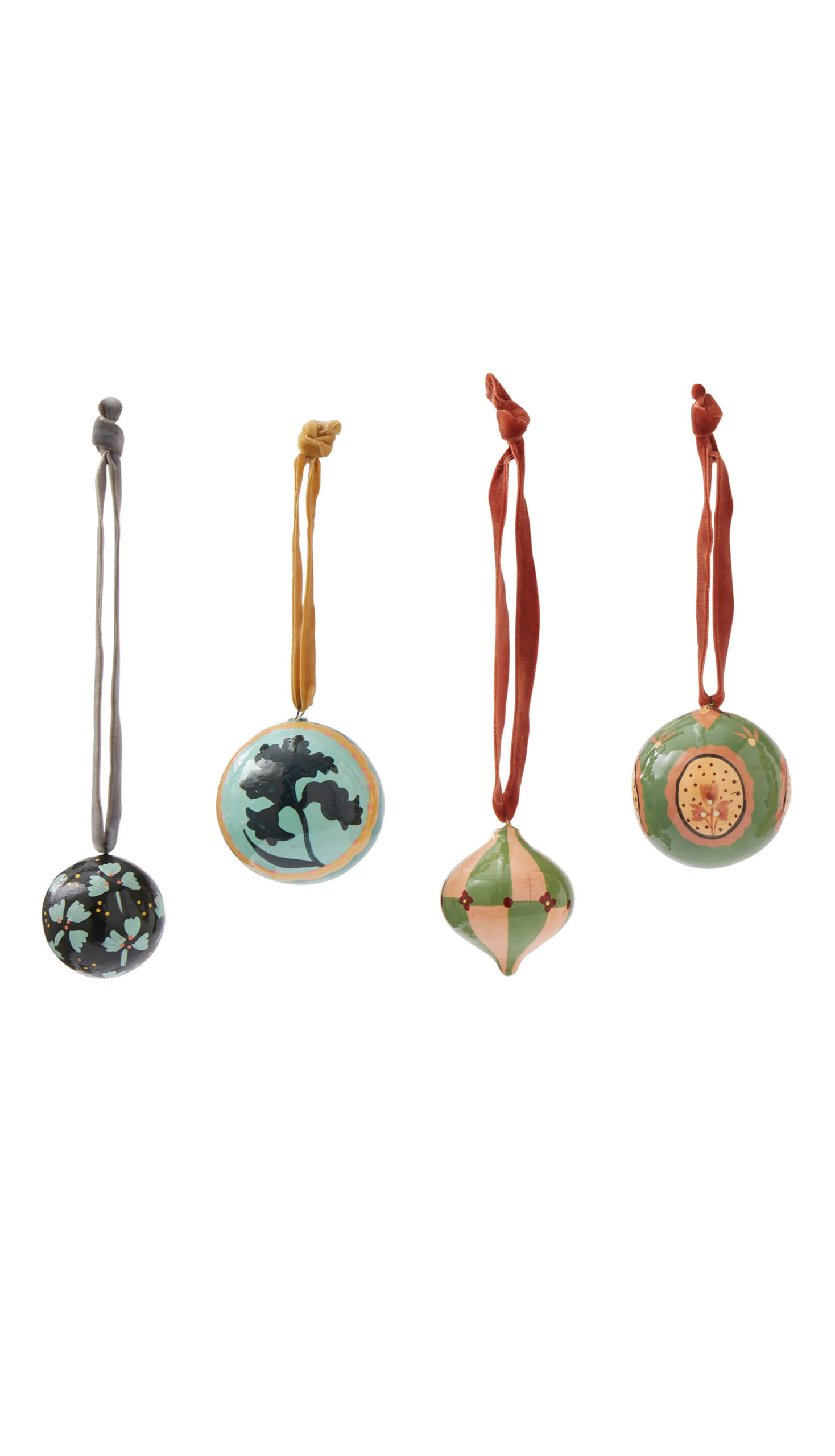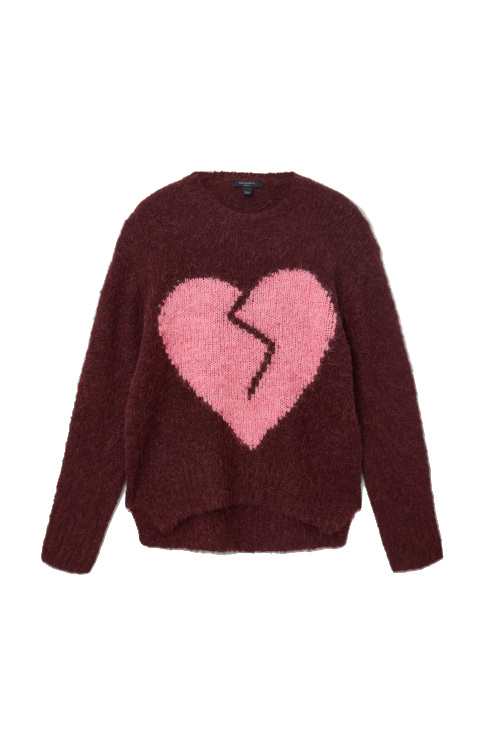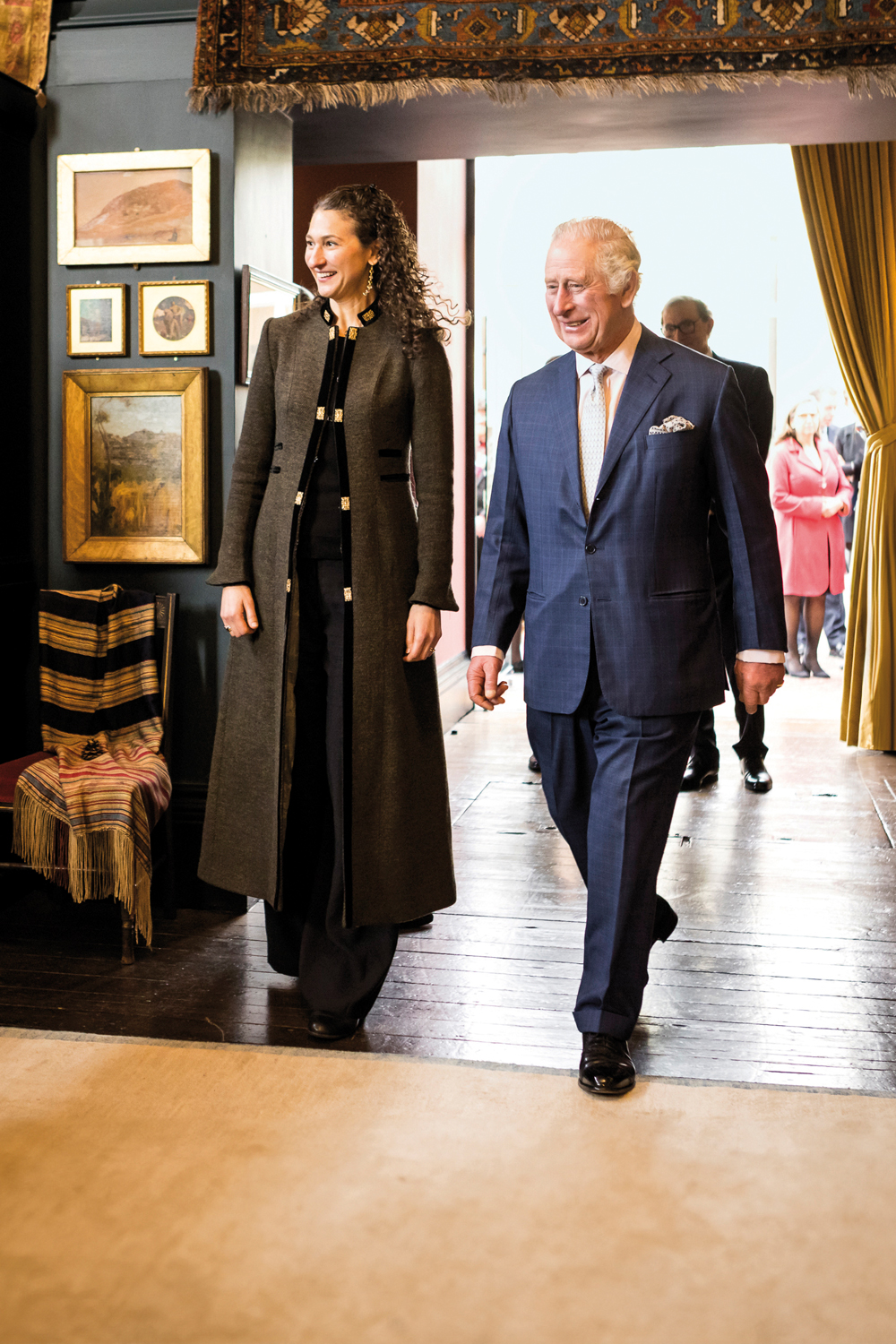
Shoshana Stewart On Rebuilding Afghanistan With King Charles
By
2 years ago
'Rory is the most remarkable person I have met in my life'
Lisa Grainger meets Shoshana Stewart to talk rebuilding Afghanistan, preserving craftsmanship, and falling for Rory.
Sitting Down With Shoshana Stewart
Sitting in her Georgian drawing room, Shoshana Stewart looks every inch the sort of lady that John Singer Sargent might have painted in the 19th century: a green crushed velvet dress with high neck and voluminous sleeves shimmering on her slim body, and a string of pale gems dripping from each earlobe, offsetting her glossy hair. Like many of the women captured by the artist, the 44-year-old is an American in London. But she’s emphatically no socialite lady-who-lunches. As I join her upstairs, surrounded by exquisite carpets and fine marquetry, it soon become very clear that she’s every bit as smart as her more famous husband, the former politician, adventurer, writer and now podcaster Rory Stewart. She is an astrophysics graduate, with a master’s degree in education and an MBA from the London Business School, and a Senior Fellow at the Yale Jackson School for Global Affairs. Not only that, but she is president of a non-governmental organisation (NGO) with more than 500 staff, whose roots extend around the world, linking craftspeople whose heritage is under threat with consumers wanting to buy beautiful handmade objects.
Turquoise Mountain was the idea of King Charles, then Prince of Wales, during a visit to Britain of Afghanistan’s then-president, Hamid Karzai. After 30 years of war, the president had explained, his country’s cultural heritage was at risk of disappearing. What the country needed was something akin to The Prince’s Foundation School of Traditional Arts to help preserve its history.
In 2006, the King dispatched to Afghanistan the one Brit he knew who’d not only walked across the country on his own, but he trusted, having got him to tutor Princes William and Harry one summer. Rory Stewart loved the idea of the challenge and moved there to start work.
When Shoshana (named after her great-grandmother, and meaning ‘rose ’ in Hebrew) arrived in Kabul with her then husband, Noah Coburn, an archaeologist, she hadn’t travelled much internationally. Until she was 20 she hadn’t had a passport, and after that had left her New York home only to go to places such as Harlem, Boston and, briefly, Honduras, to teach science in tough schools, and to Zambia to see a solar eclipse. When Noah suggested they go to live in Afghanistan in 2006 to do research, ‘it was totally random’, she says. ‘I’d never been, I’d never studied it. I just decided to take a year off and have an adventure.’
Within a day of arriving, though, she says, ‘I found what I love to do.’ Rory Stewart had been there about six months, setting up Turquoise Mountain, and needed volunteers. ‘It was madness, abject chaos,’ she says, shaking her head while describing how a driver dropped her off in Kabul at a fort called Qala-e-Noborja, on the top of which Rory was standing in a suit covered in mud. It was soon clear, she says, they needed her organisational skills. ‘The first weekend, they put on a calligraphy exhibition – but none of the computers were linked. So Aziz, the office manager and I did that… Soon, at the age of 26, I was managing a building project with a 55-year-old Pashtun man – and, against all the odds, we restored 150 historic buildings: an amazing project.’
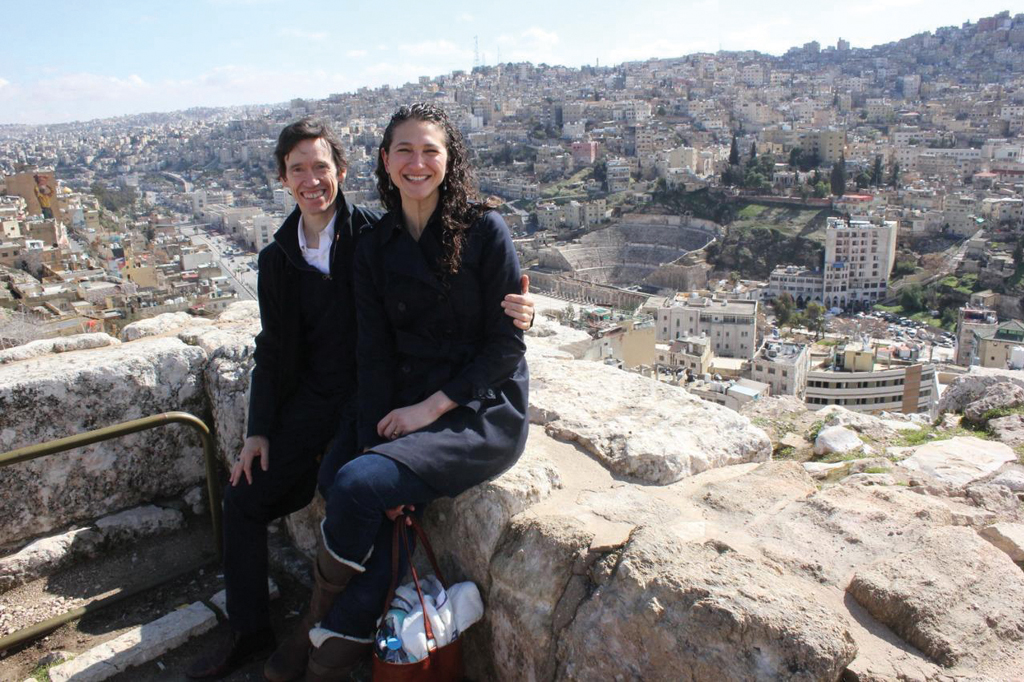
Shoshana & Rory in Amman, 2022-2023
When she talks about ‘a building project’, this wasn’t a lick-of- paint job. An entire district of Kabul, one of the oldest in the city, had fallen down, its inhabitants living in rubble: ‘The neighbourhood was six feet deep in rubbish – earth and plastic bags.’
To start with, she says, ‘Rory bought 200 spades and wheelbarrows, and hired every man who wanted work. We dropped street level by six feet and got rid of 30,000 truck-loads of rubbish.’ Next, he set about finding skilled tradesmen to create new infrastructure, and put in water and electricity. And finally, they built a school and created a curriculum, so that the skills could be passed on to future generations.
Since the Institute for Afghan Arts and Architecture opened in 2011, she says, beaming and showing me exquisite boxes inlaid with marquetry, mirrors embellished with fine mother of pearl and an ornately carved coffee table, nearly a thousand students have graduated from the three- year course. Accredited by the City and Guilds, it offers four subjects: woodwork, jewellery, calligraphy and miniatures, and ceramics.
What brings her particular joy, she says, is that many of those graduates now run their own businesses. When the Taliban took over the country, she admits, no one was sure what would happen. ‘It was such a monumental change… But the staff there kept going, and brought it back in a way that they felt proud of and was defensible. I remember the first time I went back, maybe six months after the takeover, and people taking me around, showing me their stuff. I’d been to half of their weddings when I lived there and they were so proud… I’ve never felt so happy in my life.’
In the same year that the school opened, another major change happened. During her time in Afghanistan, her marriage to Noah broke down. And having been ‘each other’s best friends’, dodging bullets and learning the Afghan language Dari together, she and Rory realised ‘that we were something else’.
‘My guy…’ she says, clearly wishing that he wasn’t away for six weeks teaching at Yale, ‘is the most remarkable person I have met in my life. I love being around him. I love Turquoise Mountain, and am so proud of what we do and what we made together. I might be the president now, but he taught me how to do it: how to make sense of a chaotic system, how to treat people fairly, how to be smart about money.’
As a result, Turquoise Mountain has expanded into five other countries, employing nearly 500 staff and 10,000 male and female artisans in Myanmar, Saudi Arabia, Syria, Jordan and Palestine. In Myanmar, where they’ve worked since 2014, their artisans include marginalised Chin and Kachin communities who have held on to their traditions of hand-weaving embroidered wedding blankets. In Jordan, where many refugees from across the Levant have fled, there are Syrian wood-carvers who ‘are at the very top of their game’. From Palestine there are ‘spectacular glassblowers’ who make clear and Phoenician-style glass. And in Saudi Arabia, she says proudly, they have an 82-year-old student of jewellery who has opened her own business and employed other women. When the jeweller got her first order, Stewart says with delight: ‘She got one of the women to write a note to me to say, “Thank you for making the first money I have made in my life”.’
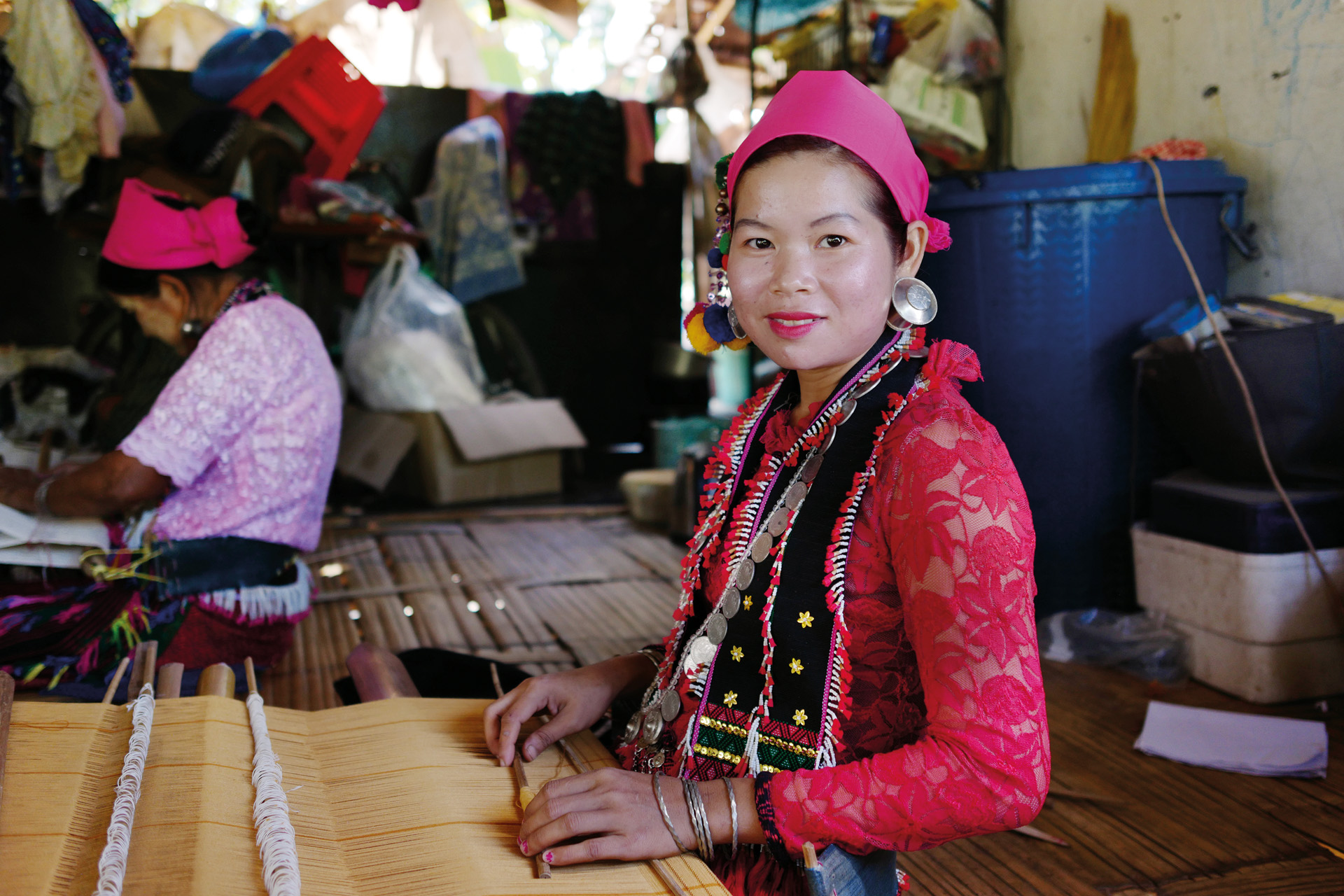
Khin Da Lin, Artisan Weaver in Myanmar
While many of the craftspeople are women, Shoshana insists the focus is preserving artisan heritage, ‘which is gender irrespective. There is something wonderful about working in cultural heritage as it’s an asset, which is not something that’s normally discussed in international development. Usually it’s about poverty, water, education – helping people fix things. Whereas with cultural heritage, we can say, “Your heritage is amazing and we can bring money to your community based on it.” It’s a fun way to approach it as you’re looking at things that are going right, not wrong.’
The organisation is clearly doing something very right. So far, it has made more than $17m in sales, channelling money into the pockets of craftspeople, funded healthcare to more than 200,000 and given customers opportunities to invest in exquisite crafts that might otherwise have vanished. In Afghanistan, she says, there are now more than a million carpet-weavers, thanks in part to the demise of Iranian carpet-making, and the mechanisation of the industry in India and Turkey. Christopher Farr in London, for instance, gets his handmade rugs from Turquoise Mountain. ‘And everyone there is proud of seeing their heritage and culture shown around the world,’ continues Shoshana.
Since The Connaught hotel in London used the NGO’s craftsmen to create the Prince’s Lodge, designed by Guy Oliver, in 2010 (which ‘was wonderful as it allowed us to showcase what we could do’), followed this year by the King’s Lodge, other hotels have followed suit. In Riyadh, the Four Seasons ordered hundreds of trays, amenity kits and bowls, and a Radisson bought something for every single room in the building. The Anjum Hotel in Mecca ordered $500,000-worth of products: the largest order Turquoise Mountain has ever had.
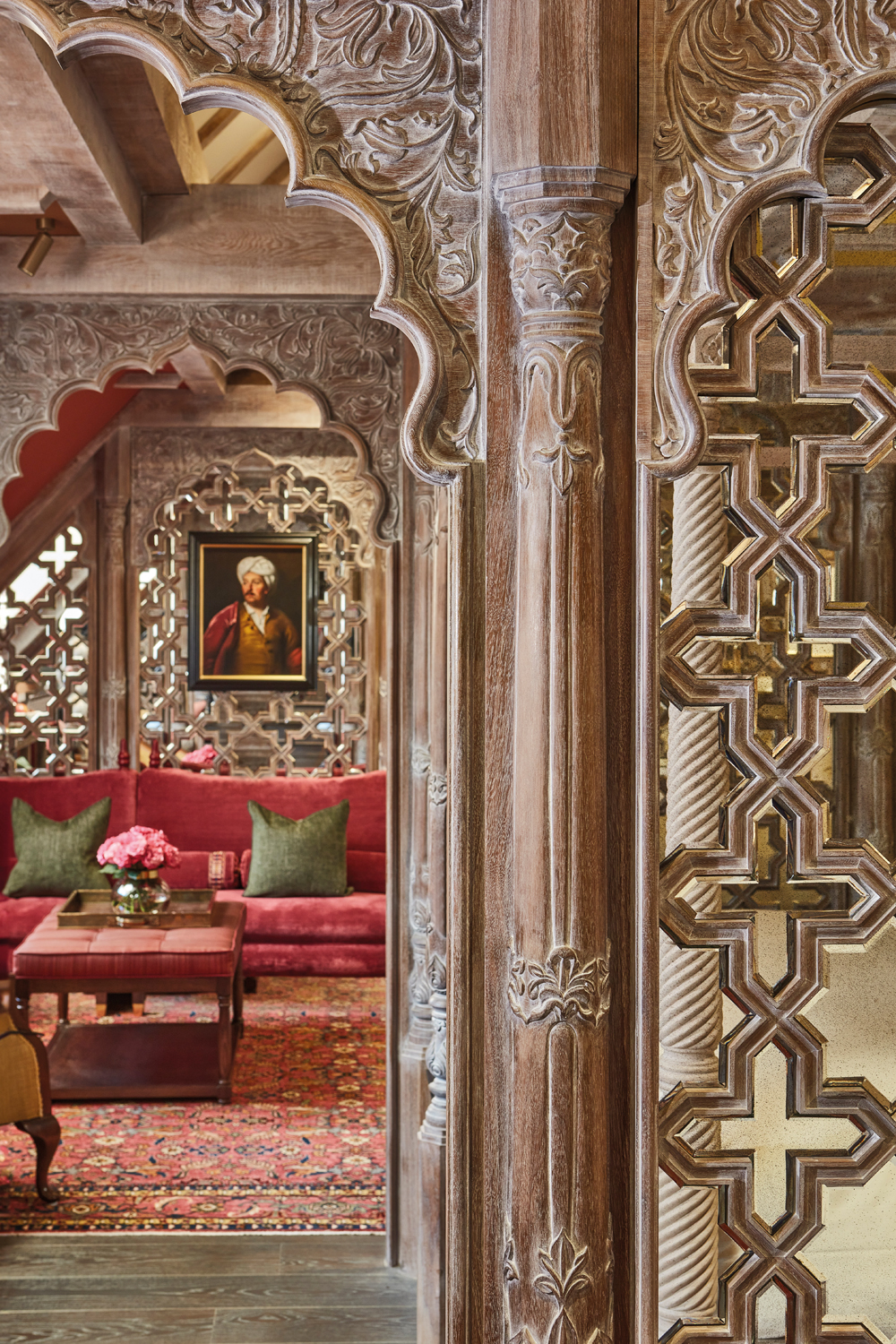
Woodwork in The King’s Lodge, The Connaught
The size of the orders, she says, shows ‘the lightning speed in which Saudi is changing. I love working there as it is such an important place. Its people are very interested in cultural heritage, and have the money and will to support it: both citizens and government.’
Not that she wants to talk politics. When her husband ran to be leader of the Conservative Party in 2019, she took six weeks off to help run his campaign – and that was enough for her. ‘I love my job and want to do this ten years from now,’ she says firmly. ‘Rory and I will always talk about everything. But I’ve realised what I love is learning about other people’s cultures, and languages, and food – and understanding why things don’t translate, or do. And bringing benefit to people. And that’s what I do.’
EXPLORE
Discover more about Turquoise Mountain at turquoisemountain.org

